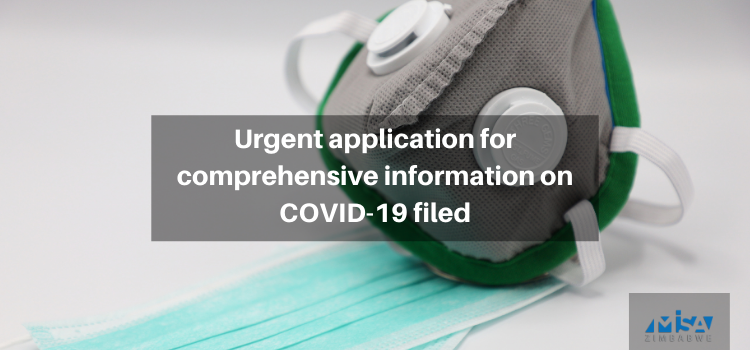MISA Zimbabwe has filed an urgent application with the High Court for an order compelling the responsible ministries to widely disseminate comprehensive information on both private and public testing, isolation and treatment of COVID-19.
The Minister of Health and Child Care, and the Minister of Information, Publicity and Broadcasting Services, are cited in the application as first and second respondents respectively.
In its application, MISA Zimbabwe says the information and reportage being disseminated on the current public health situation in the country is incomplete, uninformative, and inadequate.
In that regard, MISA Zimbabwe contends the current information fails to take into consideration the requirements of all citizens in Zimbabwe.
This application comes on the backdrop of an earlier one filed by the organisation in April 2020 wherein the High Court ordered the two ministries to ‘publish and disseminate on all available platforms, the daily COVID-19 updates in all the official languages.’
It is MISA Zimbabwe’s argument that the quality of information being disseminated is poor and shortchanging the citizens as no information has been disseminated on the new strain of COVID-19.
There is also no information as to the statistics emanating from private health facilities.
“There is no information advising the public of the new variant of COVID-19, its pathology and whether such variant has been detected in Zimbabwe.
“In fact, there is no information as to whether the 1st Respondent is even testing for the new COVID-19 variant. The amount of cross-border interaction with South Africa makes Zimbabwe particularly susceptible to exposure” says MISA Zimbabwe.
MISA Zimbabwe also highlighted that:
“Critically there is no information as to the statistics emanating from private health care providers such as the number of tests that have been conducted by such facilities, the attendant results, various aggregation of those results around gender age and location.
“All this information is critical in regards to public awareness and well as delimiting the true state of the public health emergency.”
It further argues that there is still no information on the nature and quantity of equipment available in the designated public and private institutions in Zimbabwe to deal with the resurgent pandemic.
“We are in a second and more dangerous wave of the virus and it is important that the public is made aware of the state of preparedness,” says MISA Zimbabwe.









